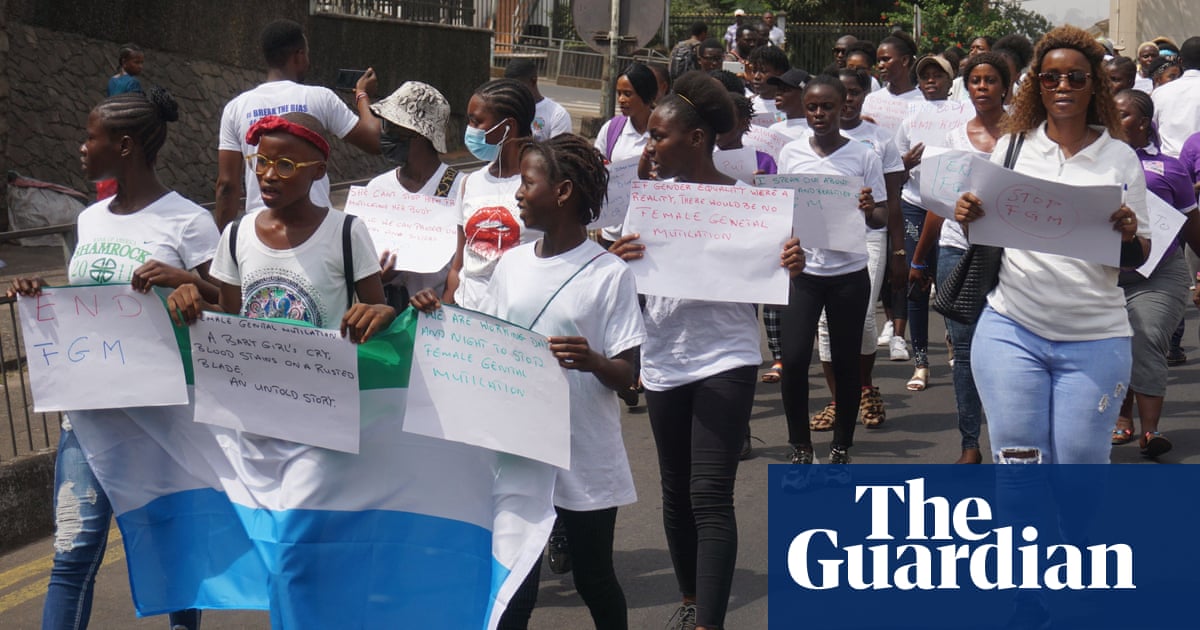
Authorities in Sierra Leone are currently conducting an investigation into the deaths of three girls who had undergone female genital mutilation (FGM).
According to local reports, three individuals, Adamsay Sesay (12), Salamatu Jalloh (13), and Kadiatu Bangura (17), lost their lives during initiation rituals in the North West province of the country last month.
According to Aminata Koroma, the executive secretary of Forum Against Harmful Practices (FAHP), a group dedicated to eradicating FGM in Sierra Leone, the parents of the girls and the individuals who performed the procedure are currently in police custody.
Female genital mutilation (FGM) is the act of partially or completely removing the external female genitalia, and is widely recognized as a violation of human rights for women and girls. In 2012, the United Nations adopted a resolution to prohibit this practice, but it continues to be performed in approximately 30 countries.
Next month, Unicef will release updated statistics on the worldwide occurrence of FGM. However, current approximations suggest that at least 200 million females have experienced FGM.
Activists and human rights advocates have urged for the criminalization of the practice, with support from the UN special rapporteur on violence against women and girls. However, FGM remains legal in Sierra Leone. According to a 2019 national survey, 83% of women have experienced FGM, which is a slight decrease from 90% in 2013.
The process is a component of a customary rite of passage that signifies a young girl’s transition into womanhood. It is performed by soweis, respected individuals within the exclusively female Bondo secret societies.
The organization FAHP is advocating for a law that would make FGM a criminal offense. They are also actively promoting alternative rites of passage that do not involve FGM. In the previous year, the group successfully tested FGM-free initiation ceremonies in three districts and plans to expand the trial to two additional districts this year. Koroma expressed optimism about the positive outcomes of these efforts.
She stated that there are numerous benefits to being part of the Bondo societies. These include educating girls about the healing properties of plants and preserving the heritage of our community. Their motto is, “Choose Bondo, reject cutting.”
Studies have shown that the most successful ceremonies for avoiding FGM are still those led by the soweis.
Koroma stated that during meetings with soweis, they frequently express that FGM is a significant source of revenue for them. The entire ceremony can cost families between $300 and $400 and typically lasts three weeks. Therefore, it is crucial to find a replacement for this practice.
She stated, “Attitudes towards FGM are evolving, but the progress is slow. I do not expect to witness the complete elimination of FGM in my lifetime, but I have high hopes for the younger generation. They will be the ones to put an end to it.”
In 2021, a 21-year-old woman named Maseray Sei passed away due to complications from undergoing FGM in the Bonthe district of southern Sierra Leone. While a practitioner was initially charged with manslaughter, the case was ultimately dismissed due to a mistake in the medical report regarding Sei’s death.
According to Divya Srinivasan, who is in charge of addressing harmful practices at the non-governmental organization Equality Now, it is unacceptable that women and girls in Sierra Leone are still dying from FGM. She expressed frustration at the government’s lack of action and refusal to take necessary measures to prevent these deaths and outlaw the practice.
Source: theguardian.com


















